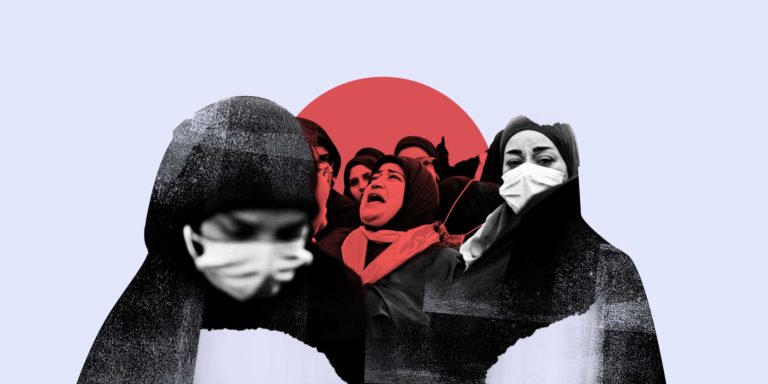It is hard for any observer to understand what first the Kingdom of Saudi Arabia and then Bahrain, Kuwait and the United Arab Emirates have done, exploiting the Lebanese financial crisis to increase external pressure in order to achieve some political goal be it within Lebanon or at a regional level.
From the start, the Gulf reaction did not match the statements made by Lebanese Minister of Information George Kordahi, which he made before he assumed his position as a minister. Statements by Saudi officials later confirmed that the Gulf measures go way beyond dealing with him and his statements, and even his dismissal.
If we take into account the extremely harsh economic conditions the country is going through, which the Gulf measures will only exacerbate, the latter can easily be described as overt blackmail, intended to increase pressure on all people in Lebanon.
Yet, although extremely harsh, the Gulf decision to escalate the situation does not turn Kordahi into the brave official who paid the price for taking a morally clean stance.
For in the same interview in which Kordahi lamented the war victims in Yemen, he praised Assad’s wars in Syria and Sisi’s coup in Egypt.
This in addition of him wishing for a military coup in Lebanon to address the current crisis. Apart from his special relationship with the Egyptian regime, Kordahi’s positions had more to do with aligning himself with one regional axis facing another than with taking a clear and bold stand. In fact, the positions he took got him his post in the quota government.
What is more, regardless of the stands he took, there is something about the character related to the interview and current Saudi campaign. Kordahi, from the moment he was appointed, became part of an integrated political system that, with its policies, contributed to the collapse we have experienced for the past two years.
Following the collapse, the same system contributed to obstructing any solution that could have removed the country from the fragility it found itself in.
The obstruction aimed to protect the well-established interests of some very influential people in both the financial and political world. The fragility produced by the Lebanese system was precisely what Saudi Arabia benefited from in launching its recent campaign against Lebanon. And this sharply contradicts the victim role Kordahi, and those behind him, have tried to take on since the Saudi decision to ban all Lebanese imports. Simply put, the issue at stake is not just a matter of one party defending its right to express an opinion, but rather the responsibility of a political system for the overall weakness of the country in the face of external pressure.
One of the elements of fragility, which are a result of the historical policies of the Lebanese political system and the way the government dealt with the economic collapse, is that it made the country vulnerable to external pressure and attempts of regional powers to take advantage.
Live Scores
The direct economic consequences of the decisions taken by Saudi Arabia, Bahrain, Kuwait and the UAE cannot be underestimated, especially in terms of banning Lebanese imports. According to figures issued by the Chamber of Commerce, Industry and Agriculture, the value of Lebanon’s exports to the Gulf Cooperation Council countries exceeded $1 billion over the past year, which represents more than a quarter of the country’s total exports amounting to some $3.8 billion.
Qatar and Oman have not yet taken a decision on banning Lebanese imports, but other Gulf states can prevent the transit of Lebanese goods to those countries.
In any case, depriving Lebanon’s productive sectors of access to the Gulf markets will affect the amount of dollars entering the local market from export operations, which will have an impact on the exchange rate in the parallel market.
In order to understand the impact of the Gulf countries’ decision on supply and demand for hard currency in Lebanon’s parallel market, it suffices to point out that the value of dollars from Lebanon’s exports to the Gulf is equivalent to some 10 percent of the value of dollars Lebanon spend annually to import goods and services from abroad.
The biggest problem for Lebanon lies in the fact that a large part of the exports heading to Saudi Arabia and other Gulf countries are agricultural commodities, which are difficult to store for long periods of time and difficult to dispose of in other markets, certainly not in large quantities and without prior warning. That is why it is expected that the agricultural sector in particular will suffer significant losses, if this crisis is not addressed soon.
Alternative markets Lebanese farmers could resort to, such as Europe, are difficult to enter with an eye on the harsh competition with European products, in addition to the European Union’s high standards and tariffs regarding the import of agricultural goods.
According to figures issued by the Lebanese Farmers Association, 50,000 tons of Lebanon’s agricultural products are annually exported to the Saudi market, which is about 16 percent of Lebanon’s total agricultural exports, while about 13 percent go to markets in Qatar, Bahrain and the UAE. If the owners of these agricultural crops suffer significant losses during the current season, they will face difficulties securing the required capital for the next season, which means that the crisis will have an impact on the medium long term.
Remittances
So far, no decision has been taken to prevent transfers of hard currency from the Gulf to Lebanon, which stem mostly from Lebanese expatriates working there. However, over the past few days, fears have grown that such decisions could be taken, especially after Saudi Arabia decided to include shipping and postal companies with the restrictions it imposed on Lebanon. A decision of such a kind would represent a severe blow to the currency market in Lebanon and to the value of the Lebanese pound.
The volume of money coming from the Gulf to Lebanon through money transfer companies is equivalent to about 37 percent of the total amount of dollars coming to Lebanon from all over the world.
This is due to the large number of Lebanese nationals working in the Gulf with close ties to their families in Lebanon. It is feared that an interruption of the financial means for these families will significantly worsen the crisis.
Systematic Problem
In Lebanon’s crisis with the Gulf states, the landmines lying underneath of the Lebanese political system are evident. The nature of the ministers brought forward by the quota governments, whose positions and aspirations only express the regional alignments to which the forces that named them belong, make them deal with the crisis according to that affiliation, despite the complexity of the crisis and its severe effects on all Lebanese.
Within this crisis, the predicament of the collapsed economic system, which does not offer the slightest element of revival, is clearly visible, which makes Lebanon extremely vulnerable to external pressure. The landmines related to sectarian affiliations also appear, which divide public opinion, towards any issue, according to sectarian lines.
As for Lebanon’s soft side, this will always be the country’s expatriates. These are the people who paid the price of the Lebanese economic model in the past. Official policy forced them to emigrate in the absence of a productive economy that generates job opportunities.
And after they provided the local market for years with the dollars required to keep the economic system going, they then lost everything they had accumulated in banks in terms of deposits and savings. They could still further pay the price of Lebanon’s crises, as is happening today. So far, there is no indication of a happy ending soon to the current crisis, especially after Saudi Arabia raised the level of confrontation by linking the measures to something way beyond Kordahi’s statements.
There are people who fear that the Gulf countries will only escalate their pressure on Lebanon by imposing an even more ferocious siege – by putting pressure on Arab countries to block some of the projects the Lebanese state is betting on to address the crisis, such as the Egyptian gas project – or by taking decisions that affect hard currency transfers to Lebanon.
The only thing Lebanon can bet on, in the absence of any local understanding on how to approach this issue, is American and French political pressure, which could persuade Riyadh to review its policy, after it has become clear that those two countries, for now, stand by the newly installed government.
Read Also:







